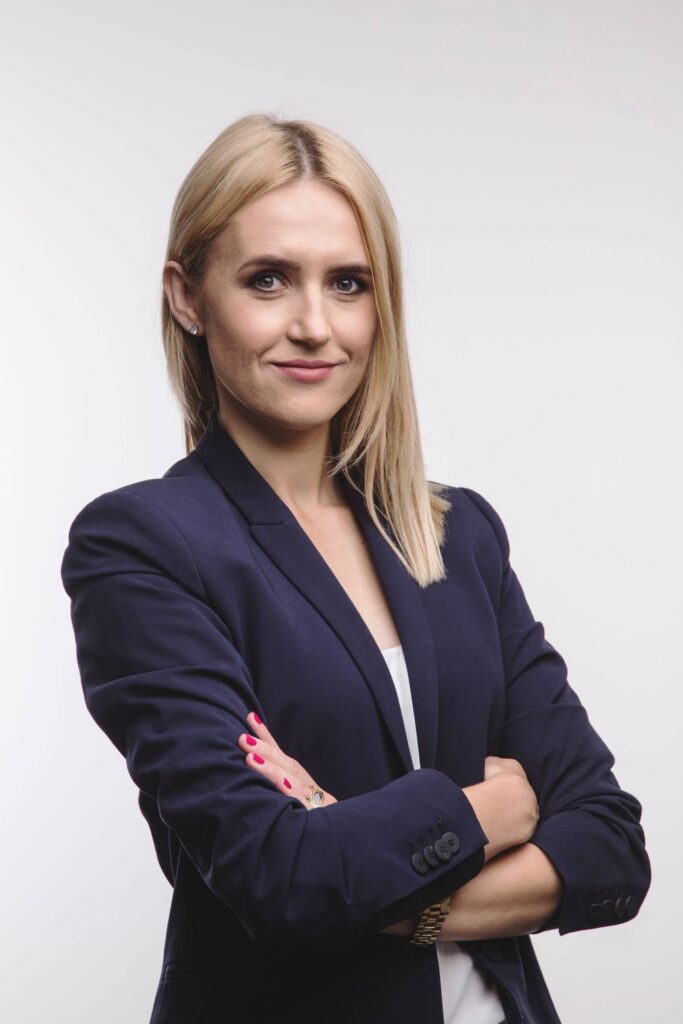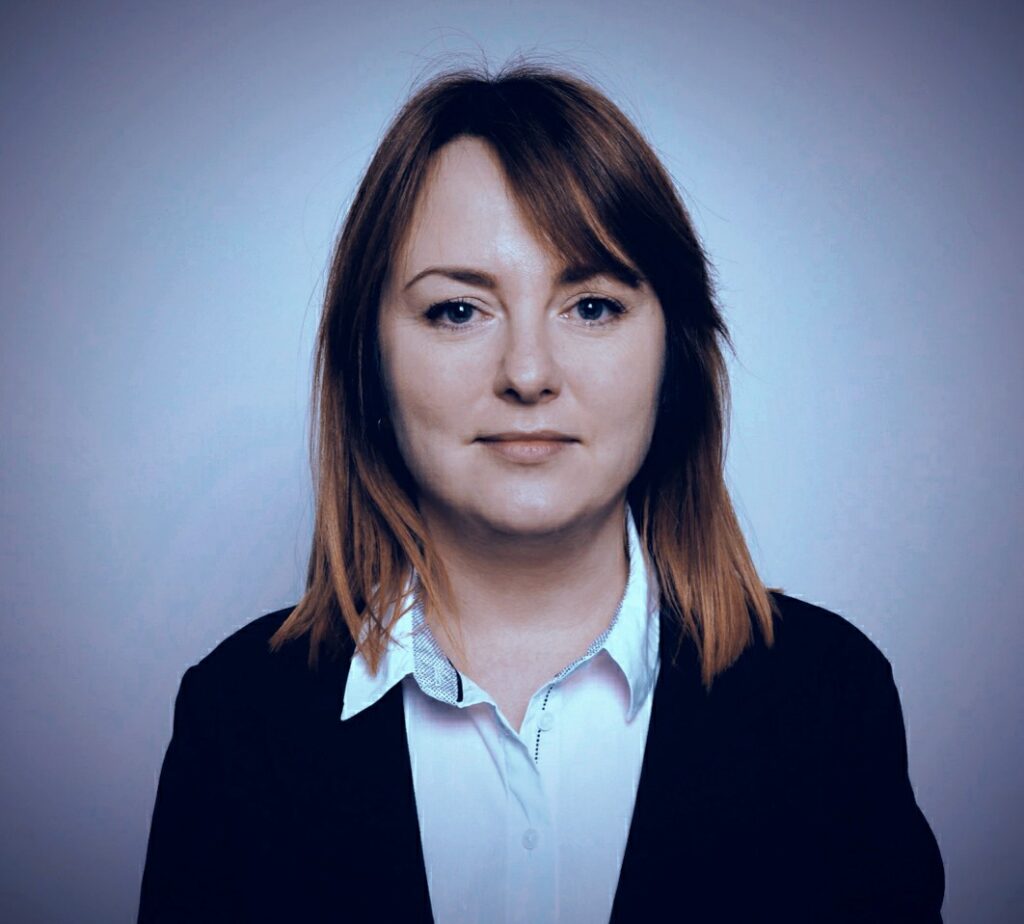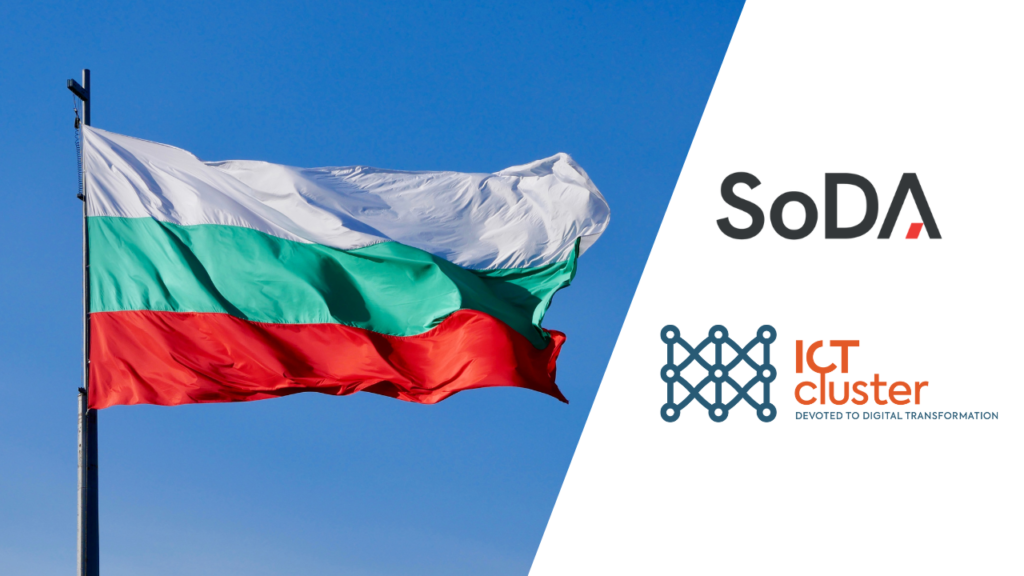In today’s part of the series of interviews entitled Women Can Do IT, we talk to Adrianna Gajowniczek, Scrum Master at HTD, Hanna Dobosz, Project Manager at Etteplan, Marta Ciesielska, Project Manager at Divante, Anna Wojciechowska, Project Manager at Codibly, Magdalena Bałut, Project Manager at CSHARK, Michalina Sitarczuk, Business Project Manager at Liki Mobile Solutions and Magdalena Bogdał, Service Delivery Manager at Netguru.
Did your career start in the IT industry? What is your background when it comes to your education and previous career path?
Anna: As a journalism student, I moved to Krakow to write books and work on the radio, but in the beginning, I found a job in a restaurant on the market square. During my studies, I met my now long-time friend who worked in IT. My computer skills consisted of installing a printer, and I used the Internet mainly for Gadu-Gadu, but my friend said that ‘it was enough to get started’ and I did it!
Magdalena Bogdał: When it comes to studies and my first steps at work, my background is Public Relations and Marketing. This later turned out to be a good basis for entering project management. I was recommended my first job in IT by a friend from university who changed the industry himself. I started working in an interactive agency, managing several small projects.
Michalina: In my current company, I started as a sales specialist, but before that, I had worked as a social worker in an orphanage. There I was responsible for the relationships between parents and children, ensuring that family ties were not broken in any way. After changing the industry, I got into it very quickly and I must admit that my educational knowledge is useful when working with programmers [laughs].
Adrianna: I am a biotechnology engineer and already at the end of my studies I realized that it was not something for me. I started to study management, where I wrote my thesis on ‘Risk Management in IT Projects’. When at some point I had to find a new job, I decided to apply for the position of a Scrum Master. I went to HTD for an interview and I presented myself so well that I have been working there for 9 months.
Magdalena Bałut: I graduated from English Philology and after studies, I worked at school for over 4 years. I was good at it, but at some point, I felt that I had achieved what I wanted, so I decided to continue my development and try my hand at a different industry. I found a job as a project manager and started postgraduate studies in Project Management at the same time. Then I managed to get a job at CSHARK, where I am still working.
Marta: In theory, working in IT is my first job, but I’ve actually been working since I was 16. I was for instance responsible for the organization of events, such as the Pyrkon Fantasy Fan Convention. I’ve been interested in computers since I was a child, my father instilled it in me. Ultimately, however, I studied Polish philology. After graduation, I returned to my childhood interests in IT, ended up in the position of Project Manager and it was a hit in the bull’s eye.
Hanna: I graduated from the Wrocław University of Technology in the field of biomedical engineering with the specialty of medical electronics. Then when I was looking for a job, it turned out that it was quite a niche specialization [laughs]. I talked to my friend with whom I was finishing my engineering studies and she encouraged me to try my hand at programming. At Etteplan, I started from the lowest level as a Junior Software Design Engineer. In the meantime, it turned out that I feel better in organizational roles and with the support of the company, it continued that way.
What do you value most in your current role?
Magdalena Bałut: What I appreciate about my work is the fact that I can develop and learn new things every day. Every day and every project is different. In addition, the people I meet on a daily basis are a huge plus — they inspire and motivate me to act.
Marta: In my work, I appreciate the fact that we make products that are real projects with specific business goals. I love the e-commerce industry for the fact that most people and companies that come to us have a specific goal on which they base their solutions.
Hanna: What I appreciate the most is that there is no routine, every day is different. In our company, a person in the position of the Project Manager takes on this role with all the associated tasks, so I am responsible both for the team and for delivering projects. I also act as sales support.
Adrianna: What I like the most is the contact with people. I am an extremely social person and for me, being able to directly help the team do their job is something absolutely fantastic.
Anna: People, process, dynamics — it’s never boring here. I have always had a knack for organizing, I feel good in places where I can take something on and deal with it. Before I developed in IT for good, I was a fitness club instructor for a few years and saw how much fun it was to motivate others.
Michalina: When it comes to technology in general, it is very inspiring that we are able to build something that will help people and what will make their lives easier. When I started working in IT 5 years ago, it may not have been that visible, but it has become especially needed now that we are all closed at home due to the pandemic.
Magdalena Bogdał: Due to my predispositions and character, it is important to me that I have frequent contact with people and high work dynamics. I really appreciate the ability to create products that help people. The variety of projects and initiatives is also fascinating. Owing to them, I can come into contact with different types of customers and many teams, with different end products and users from different regions of the world.
Your greatest professional successes in IT?
Magdalena Bogdał: I have been working as a Service Delivery Manager for about 3 years, where, together with two other managers, I am responsible for a team of over 50 people, to which I constantly recruit new people. This is a huge success for me. It is a great satisfaction to share knowledge and answer various questions and requests, I can see a huge amount of information that I have collected over the years and which allow me to help others.
Hanna: My first success was going down the path of Project Management. My first task was to supervise a small project with 3 developers. I was very nervous and felt thrown in at the deep end. Back then, I had no idea about management, I didn’t know what it entailed. However, I managed to successfully finish the project.
Adrianna: For me, it is a success when our team works like a kind of well-oiled machine. Owing to this, I know that I am also helpful and that the people who work with me appreciate it.
Magdalena Bałut: I think that after I received a great benefit of the doubt from my superiors, I managed to build a nice working team that already consists of over 30 people. Most of the projects we implement are successfully delivered, but this is our joint success.
Michalina: For me, the first moment I felt that I was doing a good job as Project Manager was the first Christmas since I started to work in IT. I got a lot of cards then. Another thing is that as an introvert, I managed to make friends with programmers in my team who are also introverts.
Anna: I cannot indicate my greatest success. In this profession, you sometimes make good and sometimes bad decisions. PM’s successes are built on both of these. I am very happy with the way my career is going. The biggest ones are still ahead of me.
Marta: It was a measurable success for me to speak at the Agile Vienna conference in September last year. It was a great achievement that I got there and got very positive feedback. Some people said I should be on the main stage [laughs].
What surprised you the most about working in IT? What is different from the common opinion?
Michalina: I think that backend programmers may seem like reserved people at first, but you can get through them quickly. For me, at the beginning of my work, the skills I gained in social work were absolutely crucial, because on a very general level the group dynamics is very similar. People like to assume certain roles, so you just have to manage it well.
Magdalena Bałut: When I started working in IT, I didn’t have any specific ideas about this industry. Of course, each of us knows the stereotype of an IT introvert. Currently, the IT world is very diverse, it is changing dynamically and you can meet a whole range of personalities here — as in most industries, in fact.
Hanna: I think there is a lot of variation in the industry when it comes to the people who work here. There are introverts, but there are also very sociable people. What I had to get used to is the peculiar sense of humor for sure, but probably every industry has jokes that you don’t understand if you don’t work in it [laughs].
Anna: When I started, IT wasn’t that well paid and popular, and then indeed when you entered the developers’ room, most of them had long hair tied up in ponytails and T-shirts with game characters [laughs]. Today there is no rule — my team includes both athletes and artists.
Magdalena Bogdał: I am positively surprised by many aspects and I have not directly experienced the stereotypes associated with IT. There are a lot of women in the Project Management department of the company I currently work for and many of them hold leadership positions. Part of the culture in our company is that programmers contact the customers directly, which makes it very difficult to nurture your inner dweeb [laughs].
Adrianna: My ex-husband is an IT specialist, so I already knew that they were really great people who are open-minded, intelligent, and who like to talk about various topics. What struck me when I started working at HTD was how young the people who work in our organization were.
Marta: I had no ideas about this stereotype of a dweeb IT specialist, but it stems from one reason. I am a nerd, I have always been very closely associated with the world of fandom, fantasy, and science fiction. This is also an area where a lot of programmers work and these groups overlap very much. I believe that this stereotype is largely untrue and should be a thing of the past.
What else are you striving for? What are your career goals?
Adrianna: My career goals are clear for now — I want to be a great Scrum Master, I want to learn and deepen my knowledge, because let’s face it, 9 months is not terrific work experience. I also hope that in a few years, I will be able to become a Scrum Coach.
Anna: I want to gradually increase the scale and, in a broader perspective, manage key projects, program,s or project portfolio. Right now, my focus is on developing my role as a resource manager. I’ve been learning something new every day lately.
Magdalena Bogdał: Ever since I became a manager, I’ve been trying very hard to focus on whether my department functions in a healthy way. We want to develop it all the time and it is important for me that it not only — on a macro scale — delivers and meets business assumptions, but also — on a micro-scale — that individual people are satisfied with working with us.
Marta: There is one very big task ahead of me — it will be the creation of a team for new technology in our company. It involves changing my thinking from task-oriented to operational, and it will definitely be a big challenge for me. For the last 6 years, I have been working by solving problems and carrying out specific tasks, and now I will have to figure out and find the areas in which I have to put my hands in.
Michalina: I would definitely like to be able to build a team on my own and deliver a finished product from start to finish. I have the impression that in such a team, apart from technical competencies, soft skills are also very important.
Hanna: What I dream about is leading a really big team, over 20 people. I would like to see how the daily challenges will scale. Another goal that is related to the former is to make everyone working in the team happy with what they do on a daily basis.
Magdalena Bałut: I would like to polish my workshop and get the Project Management Professional certificate, one of the most popular certificates for Project Managers. Additionally, I would like to try my hand at other projects, currently, I am supporting projects for one customer, maybe soon there will be time for new challenges.
What advice do you have for people who would like to work in IT?
Anna: Listen to people and see things more broadly than through the project methodology. Don’t be afraid to ask questions. The better you understand your customer and team, the more you gain their trust.
Michalina: For me, trusting my own abilities is the basis. As women, we are brought up in believing that we are fragile and we prefer such a style of communication. When you enter the IT industry, you definitely have to get used to a more direct way of communicating.
Magdalena Bogdał: If we are in a company where there is a person/department dealing with IT, then let’s try to be closer to things related to it, e.g. working on a website. Let’s also look for companies that are open to hiring and training juniors. Another thing is to look for books and podcasts that will allow us to familiarize ourselves with the vocabulary and ways of working in the industry.
Hanna: You definitely shouldn’t get discouraged and give up. If someone feels that they would like to prove themselves in a certain role, they must simply try it.
Magdalena Bałut: Postgraduate studies in Project Management will be a good step to start, as they will help you verify if this is what you are looking for (if we are talking about working as a PM).
Marta: Make sure you want to work in IT because you like it, not because you want to earn good money. Otherwise, I guarantee that you will be tired of working in a position that will not give you satisfaction. Look for a field that is related to your natural skills — here, it is worth to take a personality test, e.g. Gallup test.
Adrianna: Maybe I won’t be original here, because my advice would be exactly the same as Hania’s. If you feel IT is for you, just try it, even if you have no experience. I got into my current position from the first-ever application I submitted.










